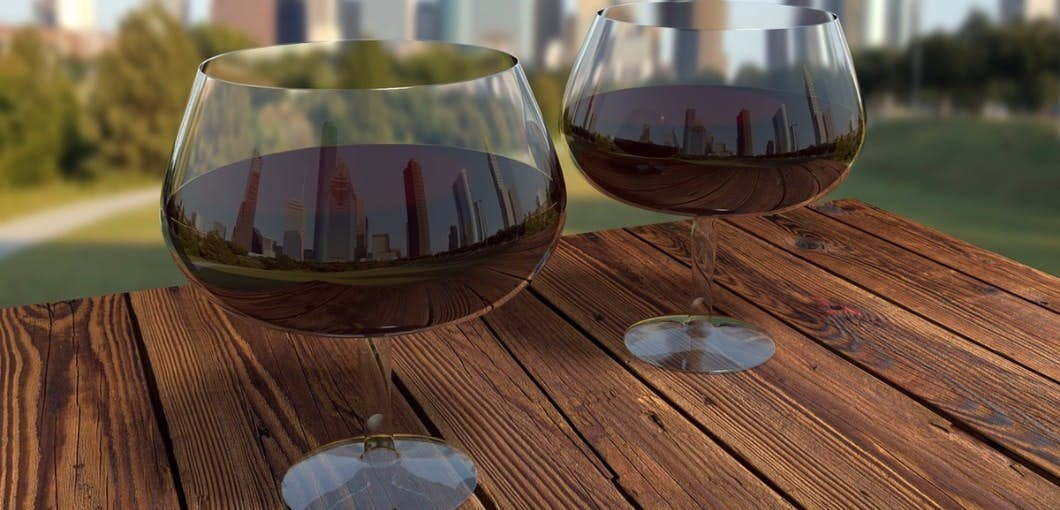
Some researchers say you may have to add an increased risk of cancer to the list of health problems related to alcohol. This is because a variety of clinical studies have reported outcomes like these:
- The International Journal of Cancer reported a total of 389,100 cases of cancer are attributable to alcohol drinking worldwide…
- A study published in Breast Cancer Research and Treatment found that drinking three or more alcoholic drinks per week after a breast cancer diagnosis may increase risk of breast cancer recurrence, especially in postmenopausal and overweight women…
- The journal Nutrition and Cancer published study findings suggesting that drinking one or more alcoholic beverages a day raised the risk of developing colon cancer by 70 percent…
- A study reported in Internal Medicine showed alcohol intake was closely related to growth of liver cancer in patients with type C cirrhosis. (Of course, cirrhosis already indicates excessive drinking.)
Others remain skeptical and want to know…
Exactly HOW can alcohol lead to cancer?
To tell you the truth… researchers aren't clear on the relationship between alcohol consumption and cancer.But the American Cancer Society offers these possible explanations:
- Causes weight gain—Excess alcohol provides extra calories—which can cause weight gain. Being overweight or obese increases the risk of developing various cancers.
- Damages body tissues—Alcohol may irritate and damage various body cells. As these cells attempt to repair themselves, it can change their DNA in ways that may be favorable to cancer growth.
- Lowers folate and other nutrient levels—Alcohol inhibits proper body absorption of folate — also called folic acid or vitamin B9. Researchers believe low folate may increase the risk of breast and colorectal cancers.
- Raises hormone levels—Alcohol may raise body levels of estrogen. Because this hormone plays a role in the growth and development of breast tissue, it may affect a woman's breast cancer risk.
But there's one form of alcohol that may have some benefits. . .
Why some researchers say
a little red wine may be fine!
A recent study published in the Journal of Women's Health said that drinking about two glasses of red wine daily lowered estrogen levels in premenopausal women—thereby LOWERING breast cancer risk.
This study showed that certain chemicals in red wine appear to block the process that converts androgens into estrogen. In essence, these compounds act as natural aromatase inhibitors (AIs).
Man-made, synthetic AIs are prescribed to women diagnosed with breast cancer to prevent it from returning. But not just any wine contains these natural cancer killers…
These chemicals are specifically found in grapes, grape juice and in RED wines. Studies show that white wines do not contain the same natural AI compounds. And perhaps most important, other types of alcohol — beer and spirits — have NOT shown these benefits.
Even with red wine the evidence for health benefits is contradictory. Is it a healthy food or a deadly danger? Hard to say for sure -- but it doesn't matter. Stay with me for a moment, because there's an easy way to reap the benefits of red wine without the possible risks and the excess calories.
One red wine compound that has received quite a bit of attention is resveratrol. Why so?
In Issue #61, I showed how some researchers have uncovered what they consider to be amazing antioxidant potential in this grape nutrient.
Studies indicate resveratrol may help prevent cell damage that can lead to cancers of the brain, breast, eyes, prostate and skin.
But I'm still not ready to say that resveratrol is the last word in cancer prevention…
After all, many medical professionals are cautious about the positive effects seen in laboratory research.
And let's not forget that resveratrol is just one of the red grape components that may have potential anti-cancer properties. It belongs to an entire class of antioxidants called polyphenols that work to enhance your overall health.
Many delicious foods contain these anti-cancer nutrients, such as blueberries, pomegranates, cranberries, and purple potatoes. The spice cumin also belongs to the polyphenol class.
And you might be surprised to know that tea and coffee are also rich sources of these antioxidants.
In short, there are a great many sources of these nutrients that carry a lot less risk than drinking red wine.
And if you're interested in boosting your intake of resveratrol and other anti-cancer nutrients but you find it hard to eat certain foods… or prefer not to drink wine—don't despair!
You can always take nutritional supplements that contain resveratrol and other polyphenols to help build a natural shield against cancer cell growth.
In any case, the natural plant compounds are sure to provide healthy total body protection—without any fear of headaches or hangovers!
Moving on to another subject, people who have been through cancer and survived often suffer from lingering psychological damage. But their needs mostly go unrecognized. Where can they go for help? Our last issue talked about that very subject. If you missed it, you can scroll down and read it now.
 Lee Euler, Publisher
Lee Euler, PublisherResources: American Cancer Society. 2012. Alcohol use and cancer. Factsheet available online athttp://www.cancer.org/Cancer/CancerCauses/DietandPhysicalActivity/alcohol-use-and-cancerBBC News. 2009. Alcohol link to breast cancer recurrence. Available online athttp://news.bbc.co.uk/2/hi/health/8406273.stmBoffetta, P. et al. 2006. "The burden of cancer attributable to alcohol drinking." International Journal of Cancer 119 (4): 884-7. Available online athttp://onlinelibrary.wiley.com/doi/10.1002/ijc.21903/abstractGanz, P. et al. 2011. "Examining the influence of beta blockers and ACE inhibitors on the risk for breast cancer recurrence: results from the LACE cohort." Volume 129, Number 2 (2011), 549-556, DOI: 10.1007/s10549-011-1505-3. Available online athttp://www.ncbi.nlm.nih.gov/pubmed/21479924Su LJ, Arab L. 2004. "Alcohol consumption and risk of colon cancer: evidence from the national health and nutrition examination survey I epidemiologic follow-up study." Nutrition and Cancer 50 (2): 111-9. Available online athttp://www.tandfonline.com/doi/abs/10.1207/s15327914nc5002_1 Kwan, M.L. et al. 2010. Alcohol consumption and breast cancer recurrence and survival among women with early-stage breast cancer: the life after cancer epidemiology study. J Clin Oncol. 2010 Oct 10;28(29):4410-6. Available online athttp://www.ncbi.nlm.nih.gov/pubmed/20805458


